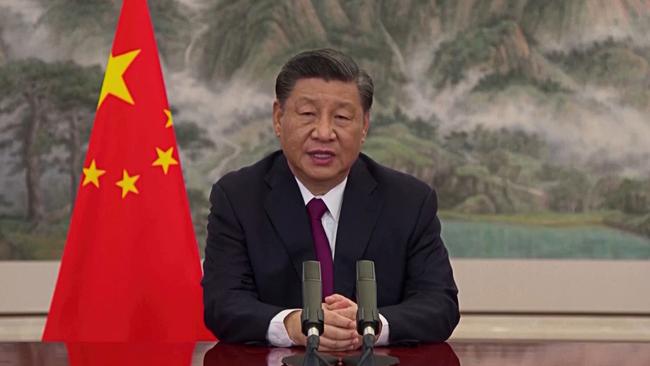Election 2022: China ‘optimistic’ about better relations under Albanese rule
Beijing is ‘cautiously optimistic’ relations with Australia will improve if Anthony Albanese wins government.

Beijing is “cautiously optimistic” that relations with Australia will improve if Anthony Albanese wins government.
China’s party state media accused Scott Morrison of playing the “anti-China” card while reinforcing Canberra’s assessment that Beijing has been trying to “wait out” the government.
In a rare disclosure, Guo Chunmei, a Beijing-based researcher at the influential China Institute of Contemporary International Relations, said she was “cautiously optimistic” relations would improve if Mr Albanese was elected.
“If the Labor Party comes to power, at least in terms of people-to-people diplomacy and social exchanges, it will bring some possibility of a recovery in Sino-Australian relations,” Ms Guo told the China Youth Daily.
Ms Guo, who last year said former Labor prime minister Paul Keating’s opposition to the AUKUS security agreement showed he had “vision”, said Mr Albanese’s recent firmer line on China was just a political position.
“He is a politician after all,” she told the Communist Youth League’s widely read masthead.
But the researcher, whose think tank is linked to China’s powerful Ministry of State Security, said any improvement with a Labor government would be modest while China’s relations were so strained with America.
“The US-Australia alliance is the consensus of Australia’s two parties … and the cornerstone of its defence,” she said.
Xi Jinping’s administration ended all ministerial communication with the Coalition government in January 2020.
Beijing then launched an extraordinary campaign of trade strikes, which has since become an international case study in the limits of Chinese power.
Record iron ore prices saw Australia’s exports to China hit new highs while Beijing’s bullying tactics encouraged Canberra to toughen its policy.
Attitudes towards China in Austraila soured profoundly. A recent survey by UTS’s Australia-China Relations Institute found nearly three-quarters of Australians think China is a security threat.
Australian diplomats last year suspected Beijing had moved to “Plan B” after the failure of its economic coercion.
“They might try and wait out the current government,” a senior Australian diplomat told an audience of China-focused business people.
“We’ve said to them, you can’t predict what any election result is going to be … And even if there is a change … that doesn’t mean China is going to get what it wants,” the diplomat said in previously unreported comments.
Labor criticised the Coalition’s diplomacy early in the breakdown, but has since been largely bipartisan. Mr Albanese and foreign affairs spokeswoman Penny Wong have said Australia’s relationship with Beijing had changed because China had changed.
Beijing’s blockade of Australian resources has added to inflationary pressure on Chinese industry.
Evan Feigenbaum, vice-president for studies at the Washington-based Carnegie Endowment for International Peace, has said China’s economic self-interest would be a key driver of any “modest reset” if there was a change of government in Australia.
China’s new ambassador in Canberra, Xiao Qian, has met senior business figures during the election campaign, including BHP chief executive Mike Henry and Kellie Parker, an executive at fellow iron ore giant Rio Tinto.
Beijing has not touched imports of Australian iron ore, on which it remains dependent despite a more-than-decade-long attempt to diversify.
The ambassador has said China wants to improve the relationship, but has not given any detail on when Beijing will resume normal ministerial communication or end its blockade of $20bn-a-year of Australian exports.
Richard Maude, who was the top international relations adviser to Julia Gillard when she was prime minister, said any post-election approaches by China should be treated with a “healthy dose of caution and scepticism”.
“China’s intent would be to re-gear the relationship on terms more favourable to it,” Mr Maude, an executive director at Asia Society Australia, wrote in a recent election briefing.
“Still, in the unlikely event it could be achieved without compromising both vital interests and values, it would be in Australia’s national interests to have China’s trade measures lifted and high-level political dialogue resumed – after all, this would simply bring Australia back to par with close partners like Japan.”




To join the conversation, please log in. Don't have an account? Register
Join the conversation, you are commenting as Logout